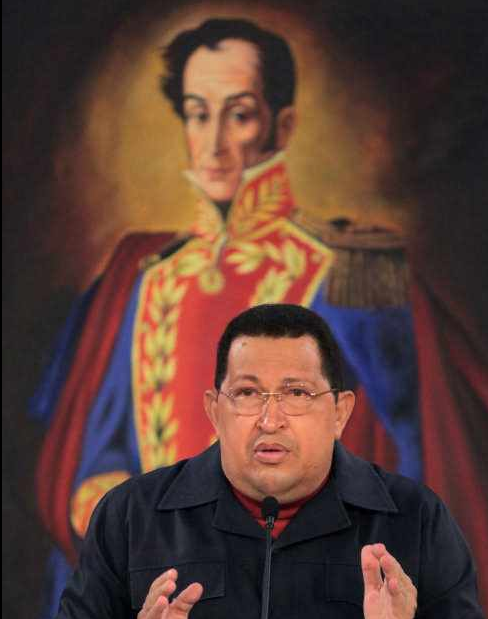McClatchy News Service
WASHINGTON — Hugo Chávez wasn’t the caricature of a strong-armed buffoon that his critics painted. His knowledge of Latin American culture and history was deep and appreciated even by his detractors across the Americas and the hemisphere.
Chávez lost his two-year battle with cancer Tuesday, and his death leaves a void in his deeply divided oil-rich country. It also leaves a populist intellectual void in a region where past history is almost always present in current conflict.
I got to watch Chávez in action up close for almost a decade as a foreign correspondent, a position that afforded a front seat to unfolding history and a chance to measure leaders up close.
My most vivid memory of the polemic Venezuelan has little to do with his socialistic bent. It was during his presidential campaign in 1998, which resulted in his elevation to president early the next year. I traveled all over Caracas and its environs in the wee hours with Chávez as he went on radio shows to field questions from listeners.
The appearances were so successful that Chávez continued his radio broadcasts in office with a show called “Alo, Presidente.” The programs showed a common touch that would endear Chávez to a nation whose people are mostly poor. But what really struck me was Chávez’s organization.
Latin American history is rife with stories of powerful orators but terrible governors, who were charismatic but chaotic. Chávez listened carefully, carrying a yellow legal-sized notepad. He drew a line straight down the middle from top to bottom, then drew quadrants on the sheet, jotting notes down in different labeled sections.
Admittedly, his note-taking amounted to just that, taking notes. But it spoke to his organized, methodical way of thinking. He was compartmentalizing listeners’ comments in order to take action, like any good manager.
Another striking memory came during the inauguration of then-Paraguayan President Nicanor Duarte Frutos in 2003. I’d sneaked into a closed-off lunch for Latin leaders by hiding my credentials in my suit jacket and walking in with dignitaries as if I were with them.
To my great delight, it worked. Soon afterward, Fidel Castro approached and I pulled out my tape recorder, asked what he thought about local newspaper comparisons of him to the late and long-ruling Paraguayan dictator Alfredo Stroessner. Castro looked at me, puzzled. He then grunted and kept walking.
But Chávez was just steps behind, and he proceeded to talk my ear off, listing all the ways that the left-wing Castro was nothing like the right-wing Stroessner, conveniently ignoring that both ruled without free elections.
Suddenly, Paraguayan radio reporters converged on Chávez. Without skipping a beat he broke into song, singing Paraguayan folk songs in the country’s language of Guarani, which is spoken on par with Spanish. He sang entire songs in a language that’s spoken only in Paraguay and a small part of Bolivia.
That was one reason Chávez earned such good will across the region. His attempt to create united Americas in the spirit of his idol, the liberator Gen. Simón Bolívar, a contemporary and admirer of George Washington, resonated with average folks across the Andes and far beyond. He enthusiastically embraced the broad and varied culture and history of the Americas, using this knowledge to win admirers who might not necessarily share his political views.
That he was a mulatto of mixed race made Chávez look like the average folk across the region. This endeared him to a region where descendants of white Spaniards had long ruled, especially in poor countries such as Bolivia and Ecuador.
This was especially true in Brazil, where a president once infamously quipped that everyone there has a “foot in the kitchen,” a crude reference to mixed blood from the days when slave owners impregnated their slaves.
Once in Rio de Janeiro, where I was based, Chávez was speaking at a university down the street from my home. Crowds gathered, and I had an idea. I had the nanny bring my 2-year-old daughter. I put her on my shoulders, gave her one of the small Venezuelan flags that were being passed around and bet that Chávez, like any politician, wouldn’t resist a photo op. He took the bait, and I pulled out my tape recorder, identified myself as a reporter and asked what message he had for George W. Bush, who’d just been reelected and whom Chávez had once denounced as a devil.
Chávez, who once dreamed of playing Major League Baseball, challenged Bush and his policies. Then, ever the politician, he grabbed my daughter’s hand as photographers snapped away.
Love or hate his political views, Chávez saw himself, if nothing else, as a true “American” in the sense of the word that liberator Bolivar used in an 1813 proclamation: “The single title, ‘Americans,’ shall be your safeguard and guarantee.”
